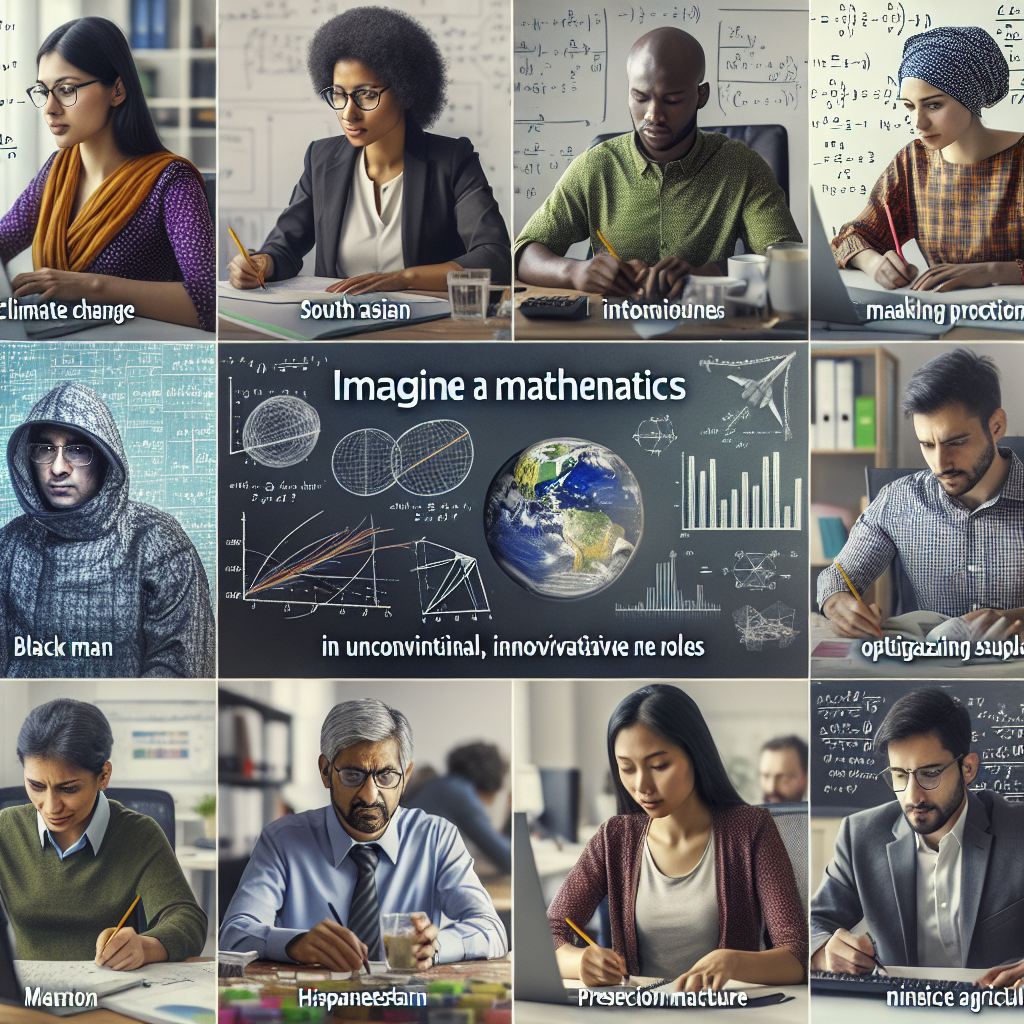Unraveling the Equation: The Future of Applied Mathematicians in Society
The revered field of mathematics, a haven of absolute truth and rigorous proof, has long stood as an academic stalwart, training minds to navigate the complex realms of abstract thought and high-level problem-solving. Yet, the perennial question lingers—how do we best integrate the talents of applied mathematicians into the fabric of our society? How do we harness their unique problem-solving prowess to generate the most significant real-world impact?
Mathematics, with its wide array of disciplines and applications, extends far beyond the classroom or research labs. The reality is that the most profound contribution of applied mathematicians may lie outside of traditional academic trajectories.
The Academic Apprenticeship: A Molding or a Mould?
At its core, the academic system is designed as a form of apprenticeship, where students of disciplines like mathematics, physics, and computer science, are groomed to become mirror images of their professors—academics and researchers. It stands to reason that the expert knowledge bestowed upon these bright minds often earmarks them for a predetermined path, one that seemingly eschews the road less traveled for the pursuit of tenure, research grants, or industry-specific roles in finance and tech.
The Big Shift: From Abstract to Impact
While mathematics is indeed vital in fields like data science and finance, the specter of an overallocation of talent in these areas cannot be ignored. If one were to orchestrate an ideal distribution of intellectual resources, where would we place our chess pieces? One might look to individuals like Eric Lander or Jim Simons, who stepped off the traditional academic ladder to scale more diverse towers of influence.
Is there merit, then, to the notion of deploying a special 'draft' of pure mathematicians into various sectors? Should there be an initiative that encourages or even requires these individuals to devote a portion of their time to interdisciplinary collaboration? Such propositions, while intriguing, are met with mixed reactions from the mathematical community. After all, the unique allure of mathematical problems is perhaps not as easily transplantable as one might hope.
The Uniqueness of Mathematical Thought
Yet, the idea persists that mathematicians hold a special place in the problem-solving pantheon. There's a unique adaptability in their skill set, an ability to abstract and pattern-match that could well be underutilized in our current societal structure.
For the individual mathematician, the journey to influence is often idiosyncratic—a blend of personal philosophy and happenstance. Take Lars Doucet, a game designer turned land-tax algorithm developer. His path was carved not through a traditional academic forge but through his philosophical interest in Georgism. Such individual stories reinforce the idea that the overarching narrative for applied mathematicians doesn't exist. Instead, each must craft their own.
The Mathematician's Crossroads: To Forge or to Diverge?
Mathematicians, particularly those taking their first post-academic steps, find themselves at a crossroads. While many succumb to the inertia of educational momentum, perhaps it's time for a more critical examination of one's potential impact. The key isn't a universal directive that applies to all but rather an invitation to consider one's unique circumstances, passions, and opportunities for application.
For those with an eye for problem-solving and a heart for societal contribution, the world is a rich tapestry of challenges waiting to be addressed. The expansive landscape of environmental issues, education, public policy, healthcare, and even the non-profit sector holds promise for mathematicians ready to apply their abstract acumen to the tangible needs of society.
Critical Thought: The Mathematician's True Calling
In the end, the question for mathematicians isn't just about where their skills are best allocated, but how they choose to define their professional identities. Do they see themselves strictly as custodians of an ancient intellectual tradition or as dynamic agents of change capable of reshaping our world's future?
Amidst the din of academia's siren song, it is a call to critical thought that may best guide the mathematician's next move. Encouraging young minds to ponder not only the elegance of mathematical theory but also its potential to effect positive, palpable change might be the subtle nudge required to diversify the field's impact.
As we contemplate the mathematician's place in society, one truth emerges—unearthing the most effective "placement" of such individuals transcends formulaic answers. It requires a bold reimagining of what it means to be a mathematician in today's world, a redefinition that prioritizes creative application over conformation to academic archetypes.
For further exploration of where mathematics intersects with society, visit The Mathematical Association of America and Society for Industrial and Applied Mathematics (SIAM).
In the calculated world of mathematics, perhaps the greatest problem to solve is how to utilize its disciples' talents to their highest potential—not just within expected parameters but where they can truly make a difference.
Related News
- The Enigmatic Equation: Talent Allocation in Mathematics and Beyond
- Diving Deep into the Mathematical Mindscape: Overallocation of Talent in Technical Fields
- Unraveling the Enigma of Pure Mathematics: A Deep Dive into its Core and Significance
- The Symphony of Mathematics: Collaboration, Analogies, and the Evolution of a Discipline
- Dancing on the Edge of Infinity: A Dive into the Exploratory World of Mathematics and AI
